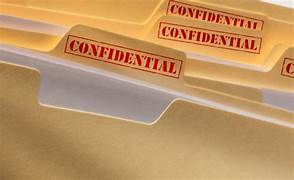
Oklahoma Attorney General Gentner Drummond is asking a judge to determine whether confidential records used as the foundation for his “market manipulation” lawsuits against two energy firms have to remain confidential during any trial.
Five days after his office sued two Texas energy firms and accused them of illegally profitting off high natural gas prices during the 2021 Winter Storm Uri, the Attorney General asked the court to determine whether some records should be sealed since they were confidential in nature from the firms.
In a filing in Osage County District Court where he sued ET Gathering & Processing LLC and Symmetry Energy Solutions, the Attorney General asked District Judge Stuart Tate to determine “the confidentiality of certain records pursuant to the Oklahoma Open Records Act.”
Drummond pointed out that the records in question were obtained by the state as part of its investigation that led to the lawsuits on behalf of the Grand River Dam Authority. The records, he said constitute some of the grounds that form bases for the state’s allegations. He wants the court to conduct an “in camera” or private review of some of the records which also “contain confidentiality clauses, including contract language that is at the foundation of this case.”
Drummond made the argument that nothing in the Open Records Act requires the State to treat information and documentation obtained through his office’s Civil Investigatory Demands or CID in any other manner.
“To be sure, the Open Records Act grants the state discretion to determine whether or not to treat such information and documents as confidential,” he stated in his filing. However, the Attorney General added that the documents and information obtained and those quoted or referenced in his petition “form the factual bases of the allegations being made by the State” against the defendants.
AG Drummond wrote the judge, “the public deserves to see them.”
So theoretically, it raises the question whether such information, should it be determined to be confidential, remain sealed during the public trial? Or could it have an impact on the Attorney General’s ability to bring the case to trial?



